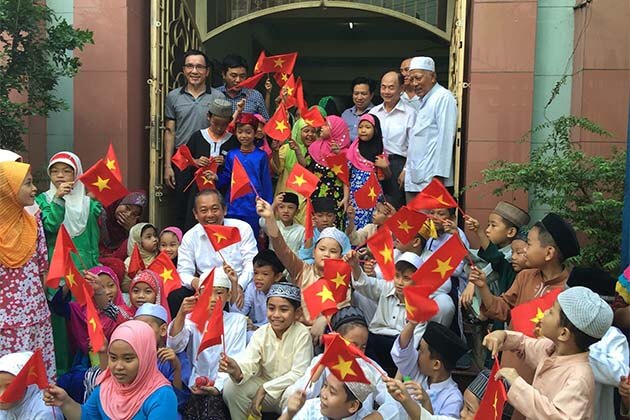The Immense Potential of Halal Tourism in Vietnam: A Golden Opportunity for Arab Investors
Estimated reading time: 10 minutes
Key Points
- The Halal tourism market in Vietnam has significant development potential.
- Vietnam needs to meet international Halal service standards.
- Arab investors have a competitive advantage due to cultural understanding and experience.
- The Vietnamese government has many preferential policies for investment in this sector.
Table of Contents
- What is Halal Tourism and Why is it Becoming Increasingly Popular?
- Current State of the Halal Tourism Market in Vietnam
- Analysis of the Specific Needs of Muslim Travelers When Visiting Vietnam
- Halal Service Standards That Need to be Met
- Opportunities for Arab Investors in the Halal Tourism Market in Vietnam
- Effective Halal Tourism Market Development Strategy in Vietnam
- Conclusion
In my role as a consulting and trade expert, who has directly experienced and deeply analyzed market trends, I recognize a new “gold mine” gradually emerging in Vietnam – the Halal tourism market. This is not just a potential segment, but also a promising field for wise investors, especially from the Arab region.
Halal tourism is defined as a form of tourism specifically designed to meet the strict requirements of Islamic teachings, encompassing every aspect from Halal food, accommodation facilities, to recreational activities. This demands high compliance regarding food origin, processing procedures, prayer spaces, and respect for religious culture and beliefs. With over 1.9 billion Muslims globally, this segment is booming. According to Vov.vn, the global Halal tourism market size has reached 350 billion USD, clear evidence of its remarkable growth rate.
This article will delve into the analysis of the specific needs of Muslim travelers, the Halal service standards that need to be met, and especially the strong development potential of the Halal tourism market in Vietnam. From there, I will clarify the special opportunities that Vietnam is opening up for investors and businesses from the Arab region, helping you identify and seize the first competitive advantages.
What is Halal Tourism and Why is it Becoming Increasingly Popular?
To enter any market, the first step is to understand your target customers. For Halal tourism, this becomes even more crucial because Islamic rules govern every aspect of life, including travel.
Detailed Definition of Halal Tourism
Halal tourism is not just about providing pork-free food. It encompasses a comprehensive ecosystem of services. Every service, from dining, accommodation, entertainment, to other service activities, must be compatible with the requirements of Muslims. This means:
- Halal Dining: Food must be prepared according to Islamic rituals, without using forbidden ingredients such as pork, alcohol, or alcoholic products. The process from farming, slaughtering (for meat), to processing and serving must strictly adhere to Halal standards. Mandatory regulations when serving Halal travelers emphasize purity and clear origin.
- Accommodation Facilities: Hotels need to ensure they have prayer rooms, or at least instructions on the Qiblat direction (direction towards the Kaaba in Mecca) in the room. Water in the bathroom must be clean and sufficient for ablution before praying. Some hotels also provide private spaces for female guests, such as private swimming pools or separate spa areas.
- Recreation and Other Services: Entertainment activities must also be consistent with Islamic teachings, avoiding places with alcohol, gambling, or impermissible forms of entertainment. Service staff also need to have an understanding and respect for Islamic culture.
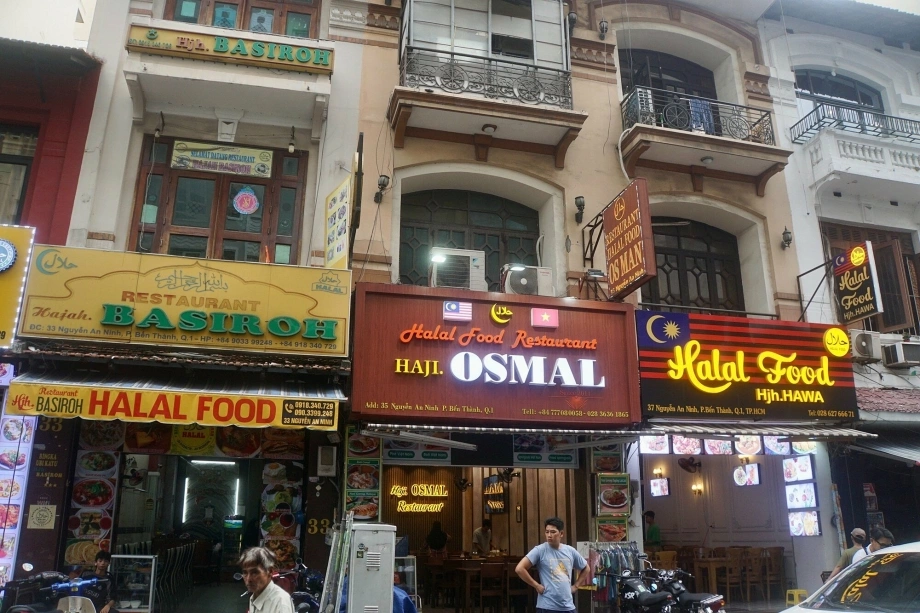
halal food in vietnam
Halal.vn affirms that adhering to these standards creates absolute peace of mind and trust for Muslim travelers.
Reasons for the Remarkable Growth of Halal Tourism
So why is Halal tourism growing so rapidly? There are three main reasons that I have observed:
- Higher Awareness of Halal: More and more Muslim travelers are conscious of choosing services and products that comply with Halal standards. This stems from the desire to practice their faith even when traveling, while seeking spiritual and physical peace of mind.
- Rise of the Muslim Middle Class: Economic development in many Muslim countries has created a middle class with higher incomes and greater spending power for travel. They not only have the means to travel more but are also willing to pay for high-quality services that meet their religious needs. Halal.vn also emphasizes the increased spending capacity of this group of customers.
- Rapid Adaptation by International Businesses: Recognizing the great potential, travel agencies, destinations, and service providers globally have quickly adapted, expanding their networks to better serve Muslim travelers. This creates more options and promotes competition, contributing to a more vibrant market.
Specific Figures and Statistics
As mentioned, the global Halal tourism market size has reached 350 billion USD, and according to Vov.vn, this segment is experiencing a high growth rate, demonstrating its superior attractiveness. It is noteworthy that Muslim travelers are often evaluated as a high-spending group with strong loyalty when they find a destination or service that aligns with their religion. This is an important factor that investors should consider.
Current State of the Halal Tourism Market in Vietnam
Vietnam, with its favorable geographical location and open-door policy, is gradually recognizing and exploiting the potential of the Halal tourism market. However, there are still many challenges to overcome.
Overview of the Initial Development Situation
Although the Halal tourism market in Vietnam is still nascent compared to countries like Malaysia or Thailand, there are positive signs. Vietnam has begun to implement specific tourism promotion and advertising programs targeting key Muslim markets. Some major cities such as Hanoi, Ho Chi Minh City, Da Nang, Nha Trang, and Phu Quoc have started to see hotels, restaurants, and services meeting Halal standards. This indicates an initial awareness of the importance of this market segment, as Vov.vn has stated.
Existing Difficulties
However, as someone experienced in the industry, I clearly see the “bottlenecks” that need to be addressed for Halal tourism in Vietnam to take off:
- Limited Number of Halal Establishments: Very few hotels and restaurants in Vietnam are officially Halal-certified. Restaurants serving Halal food are mainly concentrated in major cities and are often small eateries run by the local Muslim community. This makes it difficult for travelers to find suitable dining options in other tourist destinations. Halal.vn also points out that the number of standard-compliant hotels is very modest.
- Lack of Synchronized Facilities: Many hotels and tourist destinations do not yet have dedicated prayer rooms or clear Qiblat direction signs. Separate amenities such as spas or swimming pools for women are also virtually non-existent, which affects the privacy and comfort of Muslim travelers.
- Personnel Lack of Cultural/Religious Understanding: The majority of personnel in Vietnam’s tourism industry have not received in-depth training on Islamic culture and teachings. This leads to limitations in communication, service, and sometimes a lack of sensitivity in meeting the specific needs of travelers, directly impacting their experience.
Examples of Several Large Hotels That Successfully Experimented
Despite the many challenges, there are still bright spots. Some large international hotels in Vietnam such as InterContinental, Pullman, and Sofitel in Hanoi and Ho Chi Minh City have taken initial steps to experiment with Halal services. They have started offering Halal menus, setting up prayer rooms, and even training consultants on Halal tourism. These efforts, noted by Halal.vn, show the adaptability and potential for developing Halal services in large hotel chains. These are typical examples showing that applying Halal standards is completely feasible and brings clear benefits.
Analysis of the Specific Needs of Muslim Travelers When Visiting Vietnam
To attract and retain Muslim guests, understanding their specific requirements is a prerequisite. These are the points I have summarized from my experience working with Middle Eastern partners:
- Halal Dining: This is the top priority factor. Muslim travelers require food to be 100% Halal, free from any forbidden ingredients according to Islamic teachings. This is not limited to meat, but also includes dairy products, food additives, and even preparation methods. It is extremely important for restaurants to have clear Halal certification from reputable organizations, along with separate, transparent processing procedures. Muslim guests are very concerned about the origin and purity of the food.
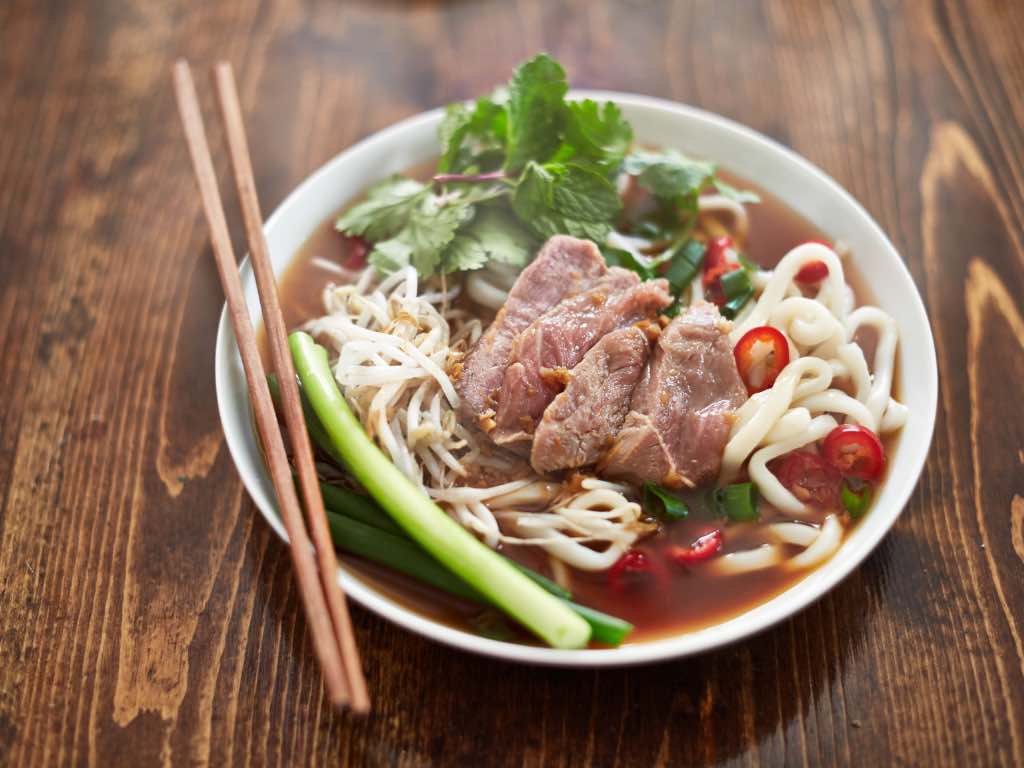
halal pho
- Comfortable and Convenient Accommodation:
- Qiblat Direction: In every hotel room, there should be a sign or a compass indicating the Qiblat direction so travelers can perform their daily prayers.
- No Alcoholic Beverages: Hotels should avoid placing minibars with alcoholic beverages in the rooms of Muslim guests or at least offer non-alcoholic room options.
- Prayer Room: Having a clean, communal prayer room equipped with prayer mats and the Holy Qur’an at the hotel is a significant plus.
- Privacy for Women: Many female Muslim travelers desire privacy. Facilities such as separate swimming pools, spas, or gym areas, or those with separate usage times for men and women, will be highly appreciated.
- Other Support Services:
- Knowledgeable Tour Guides: Tour guides not only need to be proficient in English but also have a deep understanding of Islamic culture, history, and teachings. This helps them interact respectfully, answer questions, and ensure travelers have a complete experience without violating their religious principles.
- Prayer Rooms at Tourist Attractions: Providing small, clean prayer areas at popular tourist attractions, airports, or shopping centers will help travelers easily fulfill their religious obligations.
- Respect for Beliefs: Above all, absolute respect for the beliefs and culture of Muslim travelers in all services is key. From staff attire to organized activities, everything needs to be carefully considered.
Halal Service Standards That Need to be Met
To build trust and effectively attract the flow of Muslim guests, businesses in Vietnam need to focus on meeting international Halal service standards.
Halal Certification: The “Pass” Guaranteeing Reputation
Halal certification is the process of inspecting and evaluating whether a product, service, or production facility complies with the standards of Islamic teachings. This is not just a stamp, but a commitment to quality and strict adherence. Obtaining Halal certification is an extremely important “pass,” helping businesses build strong trust with Muslim travelers and partners. Halal.vn affirms the crucial role of this certification.
Specific Requirements to Meet International Halal Standards
To achieve international Halal standards, tourism businesses and hotels need to comply with the following detailed regulations:
- Food and Beverages:
- Food must be prepared from Halal ingredients, without forbidden (haram) substances such as pork, alcohol, or gelatin from non-Halal animals.
- Use separate utensils and preparation areas to avoid cross-contamination with non-Halal food.
- Water and other beverages must be Halal. Hanoimoi.vn provides detailed information on these regulations.
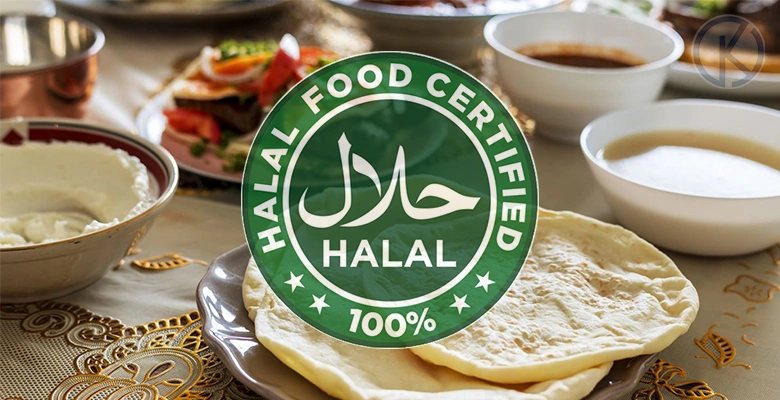
Halal certificate
- Accommodation Facilities:
- Guest rooms must be cleaned according to Halal procedures.
- Provide prayer mats and the Holy Qur’an in the room.
- Televisions should not show channels inappropriate for Islam.
- Bathrooms must be clean and have a bidet or a small showerhead for ablution.
- Prayer Facilities:
- Provide a clean, quiet prayer room with prayer mats and clear Qiblat directions.
- Spa and Entertainment Services:
- If a spa or pool is available, there should be separate times or areas for men and women to ensure privacy.
- Entertainment activities must be consistent with Islamic teachings, without elements of gambling, alcohol, or immoral activities.
Reputable Certification Bodies Trusted by the Arab Market
Choosing a reputable certification body is crucial to ensure your Halal certification is widely recognized, especially by Arab investors and travelers. Some leading global organizations include:
- JAKIM (Jabatan Kemajuan Islam Malaysia): The Department of Islamic Development Malaysia, is one of the most influential and reputable Halal certification bodies globally.
- MUIS (Majlis Ugama Islam Singapura): The Islamic Religious Council of Singapore, is also an organization highly regarded for its strict certification procedures.
- Halal International Authority: Another international organization providing Halal certification services.
Partnering with these organizations not only helps businesses meet standards but also builds strong trust, opening doors to the global Muslim market.
Opportunities for Arab Investors in the Halal Tourism Market in Vietnam
As a bridge for business between Vietnam and the Arab region, I believe that Vietnam is opening significant doors for investors from the Middle East in the field of Halal tourism.
Vietnam’s Strengths
Vietnam possesses many natural and cultural advantages that create special appeal for international travelers in general and Muslim travelers in particular:
- Diverse Nature and Culture: From beautiful beaches in Da Nang, Nha Trang, Phu Quoc, to majestic mountain landscapes in the North, and rich cultural heritage, Vietnam can offer unique experiences. Halal.vn has confirmed this diversity is a major plus.
- Competitive Prices: Travel and living costs in Vietnam are still much more competitive than in other countries in the region, allowing Muslim travelers to enjoy a quality trip at a reasonable price.
- Friendly and Hospitable Population: Vietnamese people are known for their friendliness and hospitality, willing to assist travelers. This creates a safe and comfortable environment for tourists.
- Open Mechanism Welcoming Investors: The Vietnamese government is actively attracting foreign investment, with many preferential policies and streamlined procedures, creating favorable conditions for business. Vov.vn also highlighted this trend.
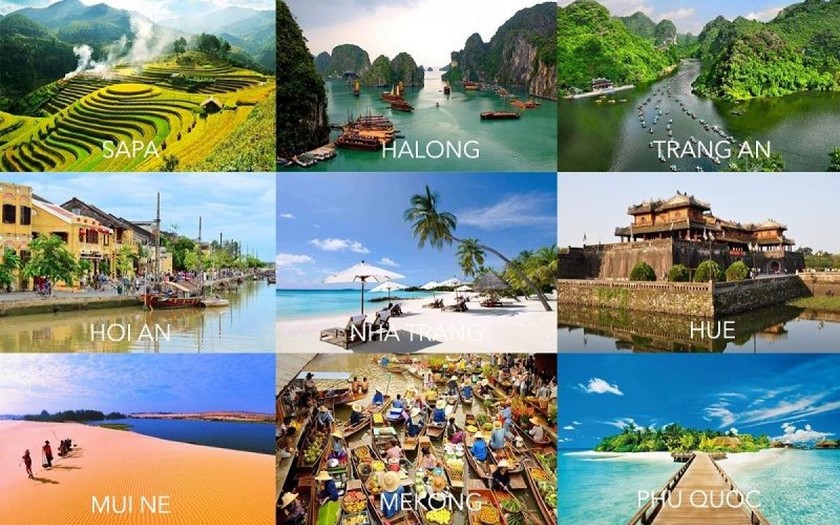
vietnam travel
Vietnamese Government’s Policies to Attract Halal Investment
Recognizing the potential of the Halal market, the Vietnamese government has begun to issue many policies to attract and support investors in this sector. According to information from sct.laichau.gov.vn, these policies include:
- Tax Incentives: There may be preferential tax rates on corporate income tax and import duties for investment projects in developing Halal infrastructure or services.
- Simplified Procedures: The government is striving to reform administrative procedures, making the business registration and licensing process faster and more convenient for foreign investors.
- Trade Promotion Support: Programs to promote Vietnamese tourism to the world, especially to key Muslim markets, are being boosted. Investors can leverage these channels to reach potential customers.
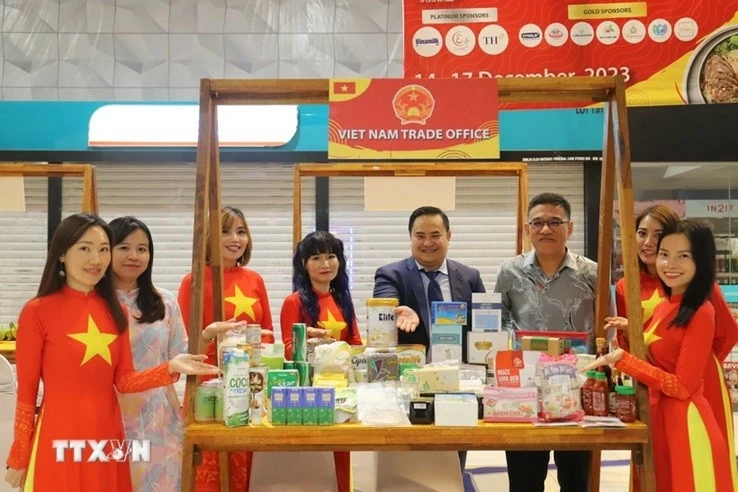
Hội chợ Thực phẩm và Đồ uống halal Việt Nam tại bang Penang Malaysia
Advantages for Arab Investors Participating
Investors from the Arab region have a superior competitive advantage when participating in the Halal tourism market in Vietnam:
- Deep Understanding of Islamic Culture: No one understands the needs and desires of Muslim travelers better than those from Muslim countries themselves. This understanding helps Arab investors design and provide truly suitable services, from cuisine to accommodation facilities and entertainment activities.
- Ability to Expand International Network: Arab investors often have extensive business networks and partnerships throughout the global Muslim community. This helps them easily promote Halal tourism in Vietnam to potential markets, while creating attractive tour packages, linking directly with airlines and tour operators in the region.
- Experience in Developing the Halal Market: Many Arab countries and traditional partners like Malaysia have extensive experience in developing Halal tourism. Investors can bring this experience and successful models to apply in Vietnam, shortening development time and optimizing efficiency.
Effective Halal Tourism Market Development Strategy in Vietnam
To truly exploit this enormous potential, a clear and synchronized strategy is needed. Below are recommendations from my practical experience:
- Develop Infrastructure Meeting International Halal Standards:
- Build and Renovate Halal-friendly Hotels: Invest in new hotels or upgrade existing ones to meet international Halal standards, including prayer rooms, separate Halal kitchens, and private facilities for female guests.
- Expand the Network of Halal Restaurants: Encourage and support restaurants in obtaining Halal certification, diversifying Halal dining options in major cities and key tourist destinations.
- Create Muslim-friendly Resorts: Develop specialized resorts providing an environment completely suitable for the Muslim lifestyle, including private beaches or private pools for women.
- Public Infrastructure: Consider adding prayer rooms at international airports, large shopping centers, and prominent tourist attractions.
- Strengthen Training of Specialized Human Resources to Serve Halal Guests:
- Cultural and Religious Training: Organize in-depth training courses for tourism staff and guides on the culture, customs, and religious requirements of Muslim travelers.
- Language: Encourage learning Arabic and other relevant languages to improve communication and the traveler experience.
- Halal Service Skills: Provide training on Halal food preparation processes, sanitation methods, and other specific services. Halal.vn has emphasized the importance of training human resources.
- Promote Cooperation with the Middle Eastern Business Community to Promote Vietnam’s Halal Tourism Brand:
- Strategic Partnerships: Establish strategic partnerships with travel agencies, tour operators, and tourism associations in Middle Eastern countries.
- Participate in International Tourism Fairs: Actively participate in major tourism fairs specializing in Halal and promotional events in the Arab region to introduce Vietnam as an attractive Halal destination.
- Develop Thematic Tourism Products: Build unique Halal tourism packages, combining exploration of Vietnamese culture and nature with ensuring full Halal facilities and services.
- Digital Promotion: Use digital media channels, social media, and influencers from Muslim countries to promote the image of Vietnam to potential travelers.
Conclusion: Unlocking Vietnam’s Halal Tourism Potential
Overall, the Halal tourism market in Vietnam is opening up a strong and largely untapped development potential, especially for investors from the Arab region. With the advantage of deep cultural understanding, specialized knowledge of Halal certification, along with an extensive international network, Arab investors are uniquely positioned to shape and lead the development of this segment in Vietnam.
See more:
Tunisia Tourism Discovering Historical Beaches and Unique Culture
Morocco Tourism Discovering Famous Cities Festival Cultural Experience

